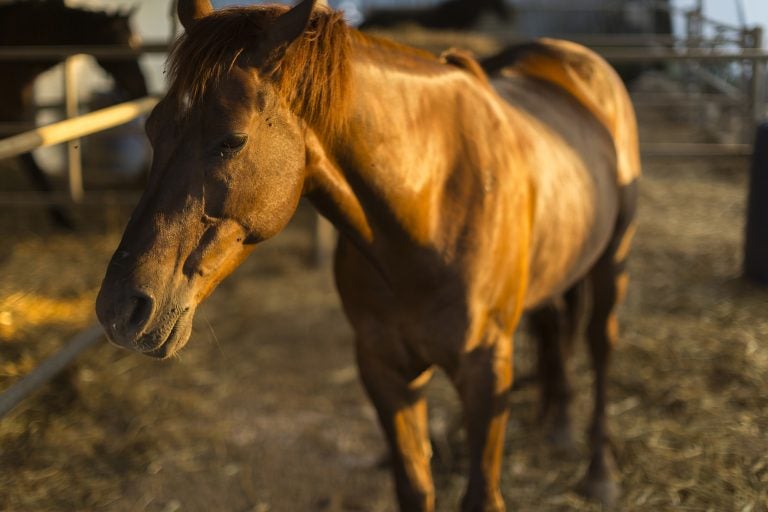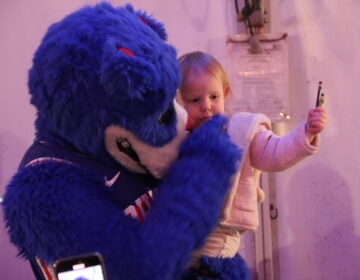Equine therapy for kids with disabilities

Portrait of a quarter horse. (Courtesy/Bigstock)
When my 16-year-old son who has autism and an intellectual disability was a young child, he was really scared of animals. Dogs simply taking a walk in the neighborhood with their owner could cause him to freeze and stop walking mid-step. It was upsetting to see him so easily frightened—but fortunately, when a therapy dog began visiting his autistic support classroom every week, he began to gradually move from fear to acceptance to curiosity and excitement. We eventually were able to get a companion dog at home and his fear of dogs completely abated.
I was really happy to see that comfort around animals transfer from dogs to horses when we went to an outdoor festival designed for families that have a child with autism and met a group of therapeutic horse trainers and their beautiful, gentle horses. One of the staff guided my son to a large, brown horse and held his hand as they brushed the horse together. My son, who is nonverbal, had a huge smile on his face. This simple moment inspired us to check out equine therapy—which turned out to be a great activity for him for many years.
Therapeutic Riding and Hippotherapy
If you’re a parent of a child with a developmental, cognitive and/or physical disability and are interested in exploring horseback riding, it’s important to consider your goals for your child.
The Professional Association of Therapeutic Horsemanship International (PATH Intl.) defines therapeutic riding as “an equine-assisted activity for the purpose of contributing positively to the cognitive, physical, emotional and social well-being of individuals with special needs.”
Hippotherapy is different—it refers to occupational, speech and/or physical therapy—which many children and teens with disabilities receive—that uses equine movement as part of the therapy. It’s a tool that’s used by therapists—generally in connection with other practices.
To determine if therapeutic riding or hippotherapy would be best for your child, you may want to start a conversation with your current therapy team and also check out some of the amazing local stables that offer both kinds of experiences with horses in our area.
Finding A Stable
We’re very fortunate in the Greater Philadelphia area that there are a number of stables with a mission to serve children, teens and adults with disabilities. For many parents, finding a stable in geographic proximity is helpful—though I know many families who take a long drive every week to get their kids to their favorite stable. Different stables have different ranges of fees—and many of them offer scholarship opportunities for families who can’t afford equine therapy.
In our family, finding a stable where my typically developing daughter was able to take lessons while her brother with special needs took lessons was a top priority on our list.
Here is a list of local stables—check out their web sites and find out about what each has to offer. If your child has benefited from any kind of equine therapy, please share about your experiences and your favorite stable in the comments below.
Ivy Hill, Perkasie, offers therapeutic riding, hippotherapy and an inclusive summer camp.
Parkwood Therapeutic Riding Center, Northeast Philly, evaluates each rider to best assess his/her needs.
Pegasus Therapeutic Riding Academy, Northeast Philly, offers therapeutic riding and a special program for children with autism.
Sebastian Riding Associates, Collegeville, offers summer camp, hippotherapy, therapeutic riding and also therapeutic driving, in which participants sit in a cart attached to a horse rather than riding the horse.
Special Equestrians, Warrington, offers therapeutic riding and hippotherapy.
Thorncroft, Malvern, offers therapeutic riding and a summer camp program.
WHYY is your source for fact-based, in-depth journalism and information. As a nonprofit organization, we rely on financial support from readers like you. Please give today.




